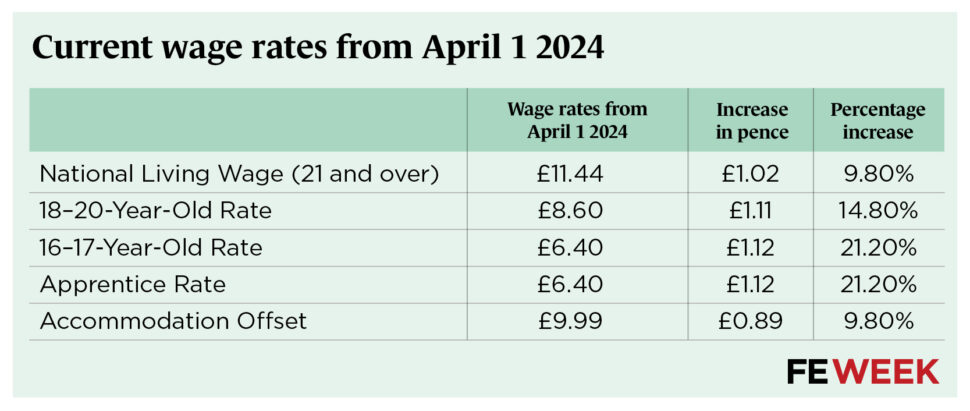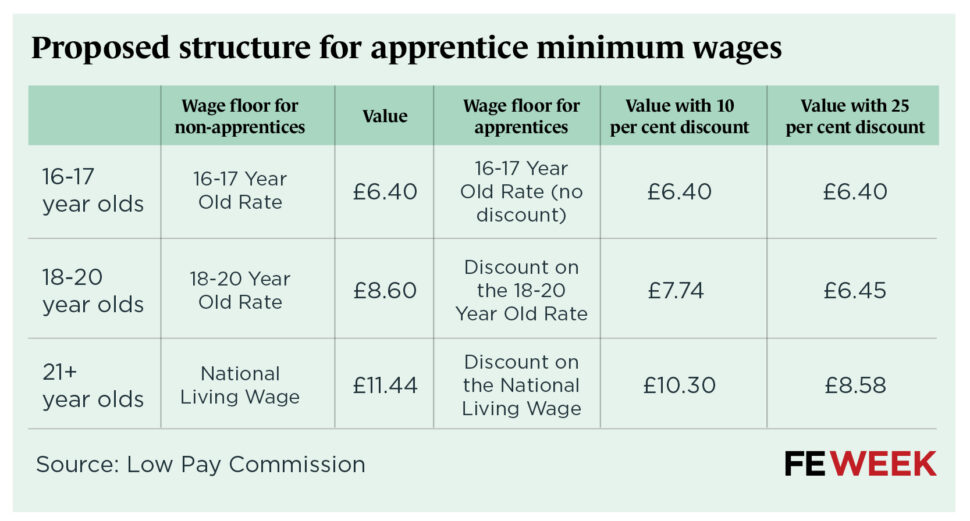The apprentice minimum wage should be raised for over 18s to narrow the pay gap between apprentices and other workers, an independent advisory body has suggested.
The Low Pay Commission (LPC) began considering abolishing the apprentice minimum wage in November after hearing “widespread” concern that the “low” rate was discouraging people from taking apprenticeships.
In new advice published on Wednesday, the commission said the wage should be kept but that the government should link the rate to the national minimum wage for over 18s during the first year of their apprenticeship.
That means that the gap between the national minimum wage for adult apprentices and non-apprentices would be reduced (see table).
LPC’s ‘National Minimum Wage beyond 2024’ report said: “Government should consider the case for reforming the apprentice rate to a simple discount of the minimum wage that applies for that age group during their first year and ask us to take this forward in a future remit. For apprentices aged 16 and 17, the rate should remain aligned with the 16- to 17-year-old rate.”
The commission has not concluded what the discount should be exactly but a “reasonable” starting point would be to set the apprentice rate at 75 to 90 per cent of the adult national minimum wage.
From April 1, 18 to 20-year-old workers will earn at least £8.60 per hour and 18 to 20-year-old apprentices will earn £6.40 per hour – a 21 per cent rise from last year.

The commission is suggesting that with a 25 per cent discount of the new 18 to 20-year-old rate, apprentices over 18 could earn £7.74 per hour.
The body explained that it was not advising to remove the rate entirely because it “would remove alternative ‘shelter’ for young people’s employment.”
“Large changes to the youth and apprentice rates at the same time could be a significant shock to the youth labour market,” the report said.
The Low Pay Commission also proposed lowering the age of eligibility for the national living wage “one age group at a time and to reduce the gap between the youth rates and the adult rate where the evidence allows”.
One small business owner in Manchester told the body of the large jumps in rates when employees turned 21 and came off the apprentice rate, which “could be a significant cost shock”.
“If the government agrees to our recommendation to, over time, lower the gap between the youth and adult rates and lower the age of eligibility to the national living wage further, then we think the current structure of the apprentice rate should also change,” the commission said.
“We would propose that, for apprentices aged 18 and over, the apprentice rate changes to a simple discount of the national minimum wage age rate during the apprentice’s first year.
“This, combined with the lowering of the age for national living wage eligibility, will result in substantial increases in the wage floor for apprentices, but continue to recognise the additional costs relating to the substantial training they receive.”
Baroness Philippa Stroud, chair of the Low Pay Commission, said: “There are real opportunities in the next phase of minimum wage policy, to make advances for workers young and old. Whatever decisions are made will always need to be backed by careful attention to the economic context and a keen sense of the risks faced by employers. The Low Pay Commission’s model remains the best one for delivering these changes.”
The government usually announces minimum wage rates in November for the following April.


